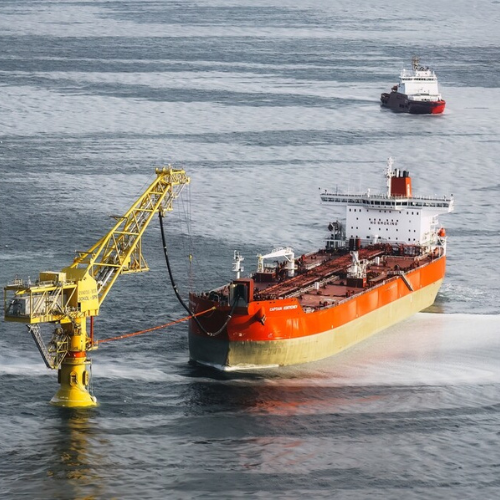The United Kingdom made a strong move against Russia by announcing its largest sanctions yet aimed at what is known as the “shadow fleet.” This term refers to a group of tankers that Russia uses to sell oil, even while Western countries have imposed bans and restrictions on such sales after Russia invaded Ukraine.
These new sanctions are a significant step in the ongoing effort to limit Russia’s ability to earn money from oil exports, which play a crucial role in funding its military actions. The latest crackdown targets 18 more ships, increasing the total number of sanctioned vessels to 43. This means that these ships can no longer dock in U.K. ports or use British maritime services.
Understanding the Shadow Fleet
So, what exactly is this “shadow fleet”? These tankers often operate under mysterious ownership and frequently do not have the necessary insurance. Because of this, they can easily slip through the cracks of international law. Experts say that this fleet has been essential for Russia, allowing it to continue selling oil even in the face of strict sanctions.
Since the invasion of Ukraine in February 2022, many Western countries have imposed embargoes on Russian oil. These sanctions are meant to limit the money flowing into the Russian government, which can use those funds to support its military actions. Despite these efforts, the shadow fleet has made it possible for Russia to keep exporting significant amounts of oil.
A recent report by the Kyiv School of Economics revealed that the volume of Russian oil exported through these shadow tankers has almost doubled, reaching around 4.1 million barrels per day as of June this year. This alarming statistic indicates that despite the sanctions, 70% of Russian oil exports by sea are now being handled by these ghost tankers.
The Environmental Threat
Not only are these ships helping Russia evade sanctions, but they also pose serious risks to the environment. The U.K. government has pointed out that the shadow fleet often violates basic safety standards. This is concerning because it can lead to oil spills and other environmental disasters that can harm marine life and coastal communities.
Ben Gvir and Smotrich Face Potential Sanctions from UK Government
In a statement, the U.K.’s Foreign Commonwealth and Development Office (FCDO) said that their sanctions are designed to “starve Putin’s war machine of crucial revenues.” The goal is to cut off funding for the military operations that are causing so much destruction and suffering.
David Lammy, the U.K. Foreign Secretary, has made it clear that he is committed to using every available tool to put pressure on the Kremlin. “I have made it my personal mission to constrain the Kremlin, closing the net around Putin and his mafia state,” he stated. This illustrates the U.K. government’s determination to take strong actions against Russia and to hold it accountable for its actions in Ukraine.
The Impact of Sanctions
The U.K.’s sanctions package targets not only tankers but also includes restrictions against four Liquefied Natural Gas (LNG) tankers and the Russian gas company Rusgazdobycha JSC. This broad approach signifies that the U.K. is looking to impact multiple facets of Russia’s energy sector.
Many of the ships targeted in these sanctions belong to Sovcomflot, which is Russia’s largest shipping company. By targeting such significant entities, the U.K. aims to make a substantial impact on Russia’s ability to transport oil and gas, ultimately hoping to decrease its revenue from energy exports.
While the U.K. has taken these steps, the reality is that the shadow fleet remains a challenging issue. With the report showing that Russian oil exports via these ghost tankers are thriving, it raises questions about the effectiveness of the sanctions. The complex web of ownership and operation of these ships makes them difficult to track and regulate, allowing them to continue functioning despite sanctions.
The ongoing situation highlights the tension between efforts to impose economic penalties on Russia and the resilience of its oil and gas industry in adapting to these challenges. The U.K.’s latest round of sanctions marks a serious effort to tighten the noose around Russia’s ability to export oil, but the shadow fleet’s ability to navigate around these restrictions remains a significant hurdle.


